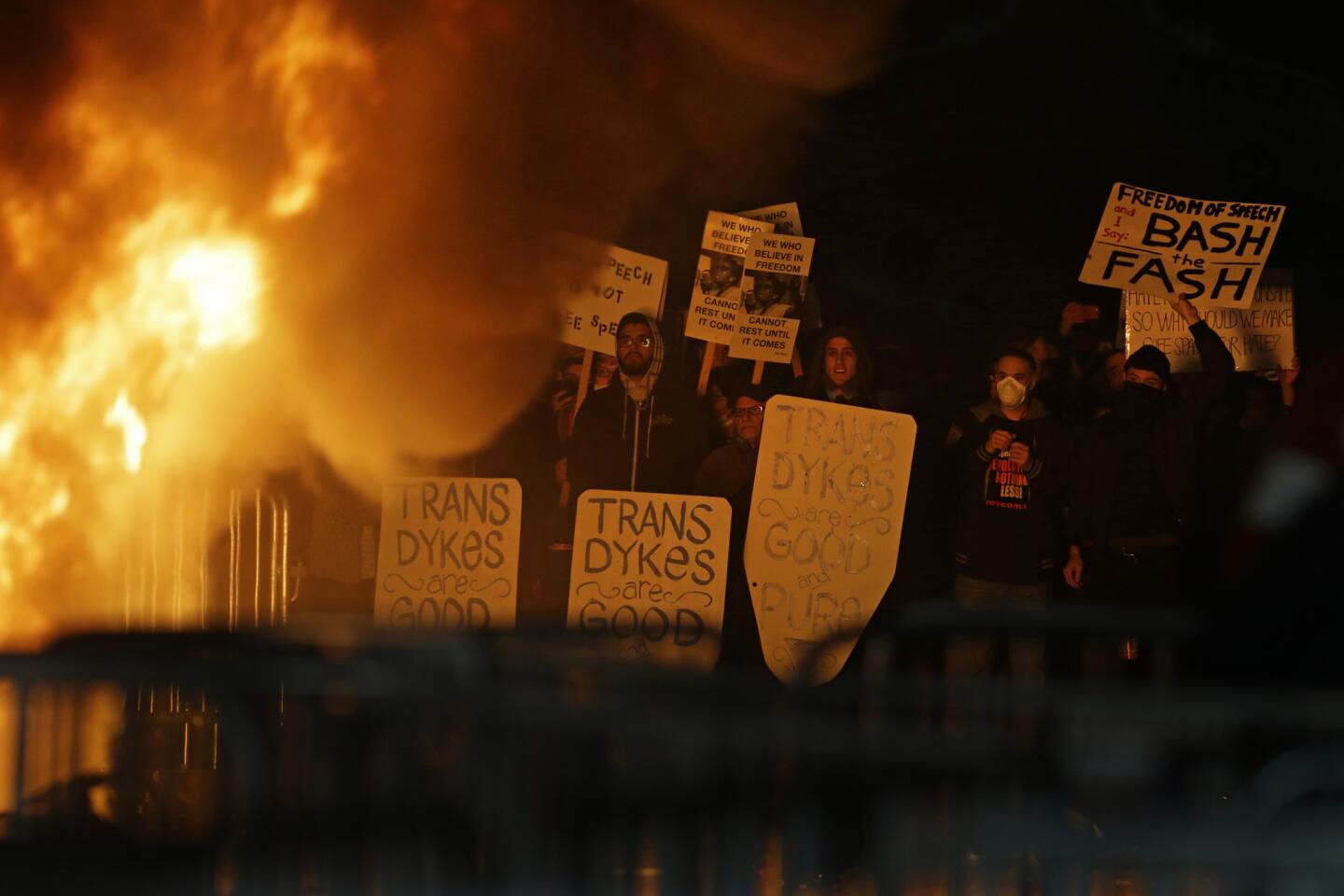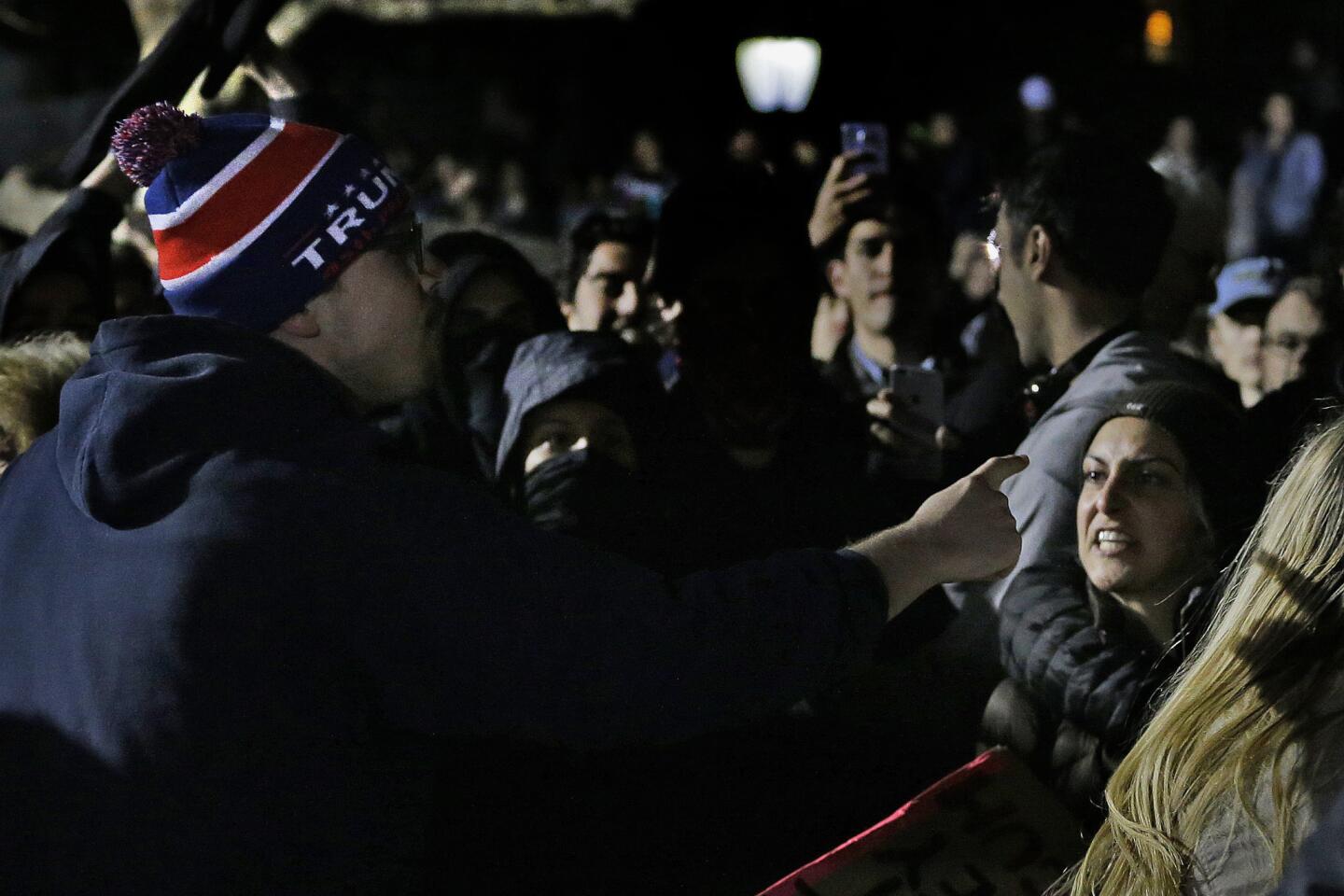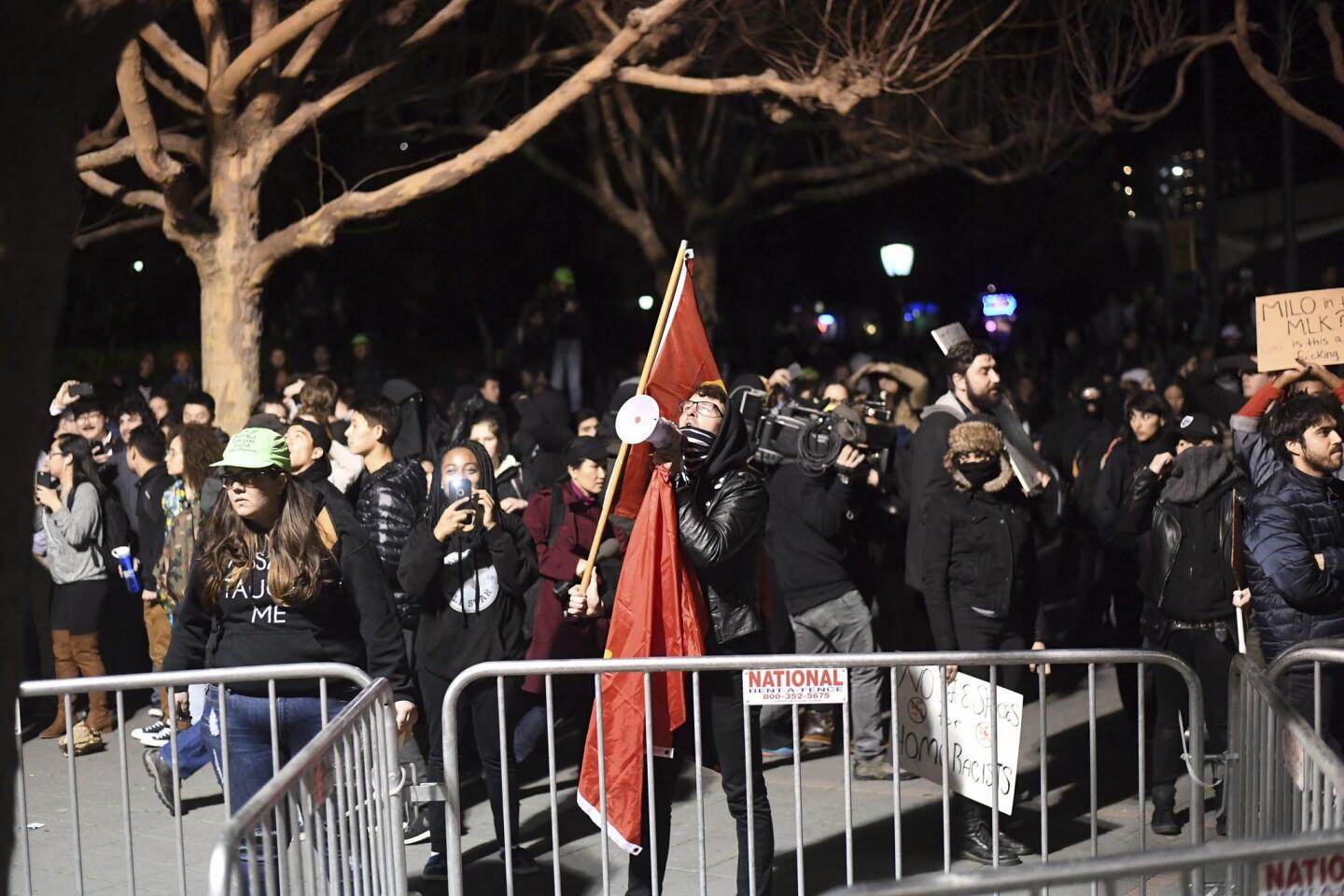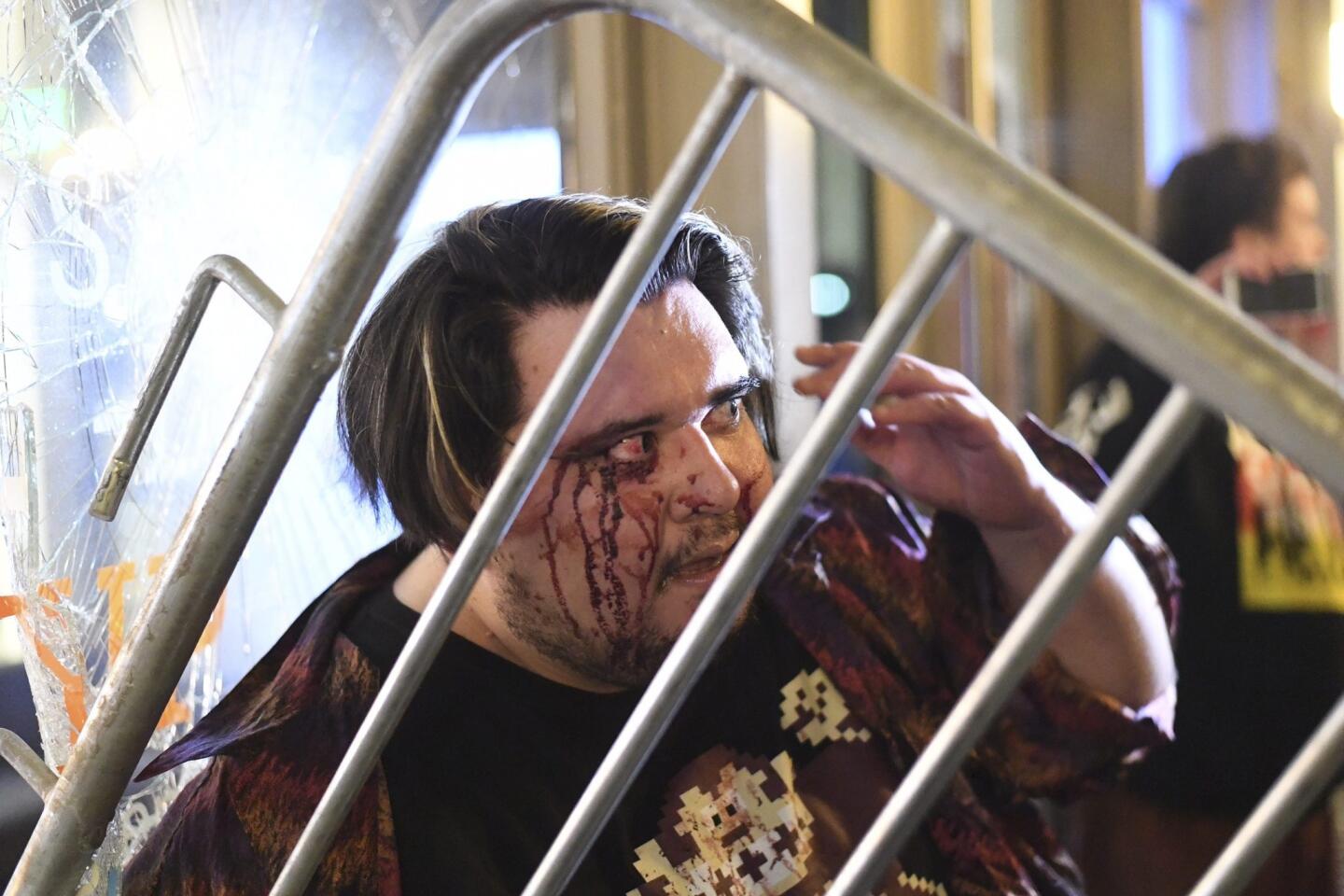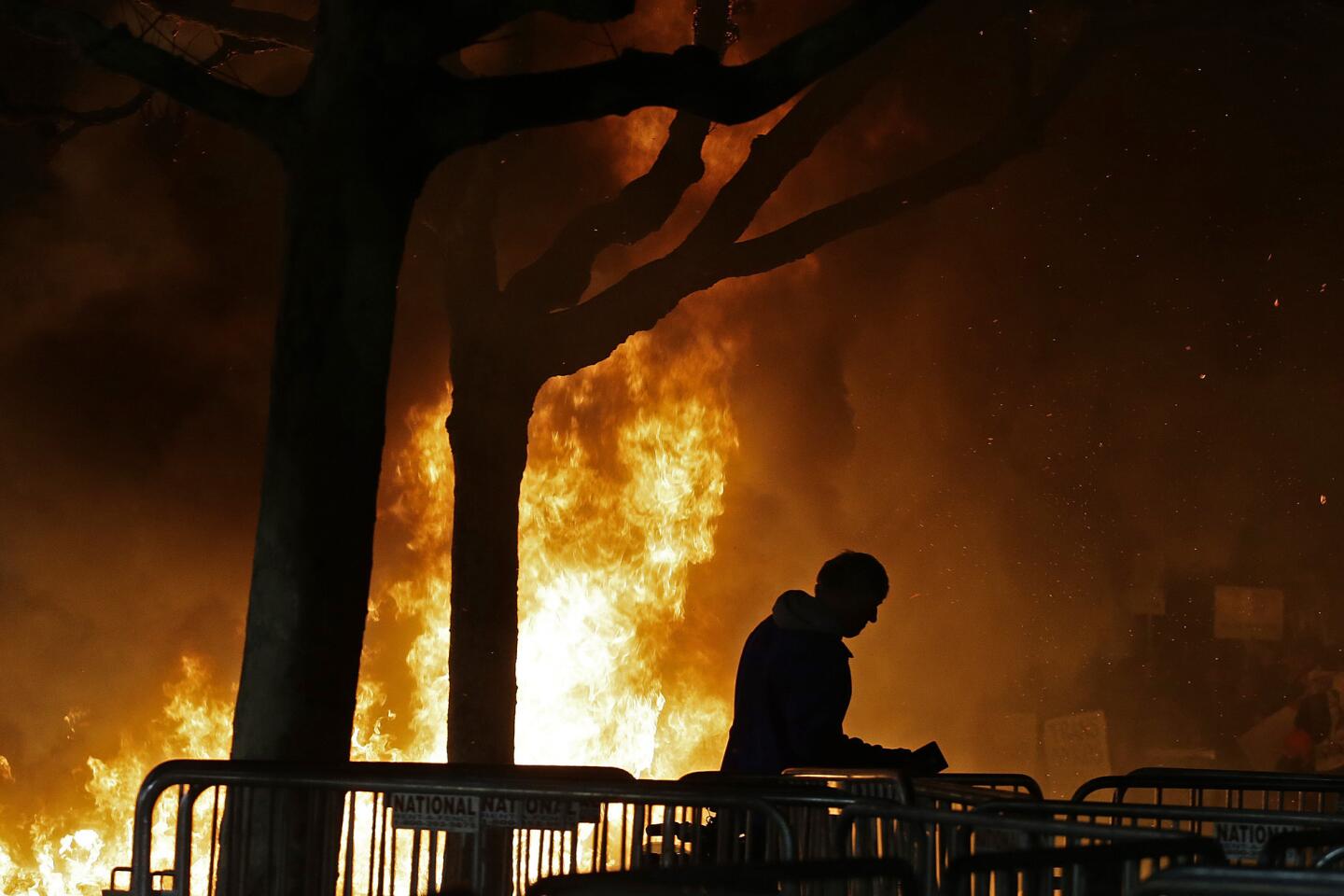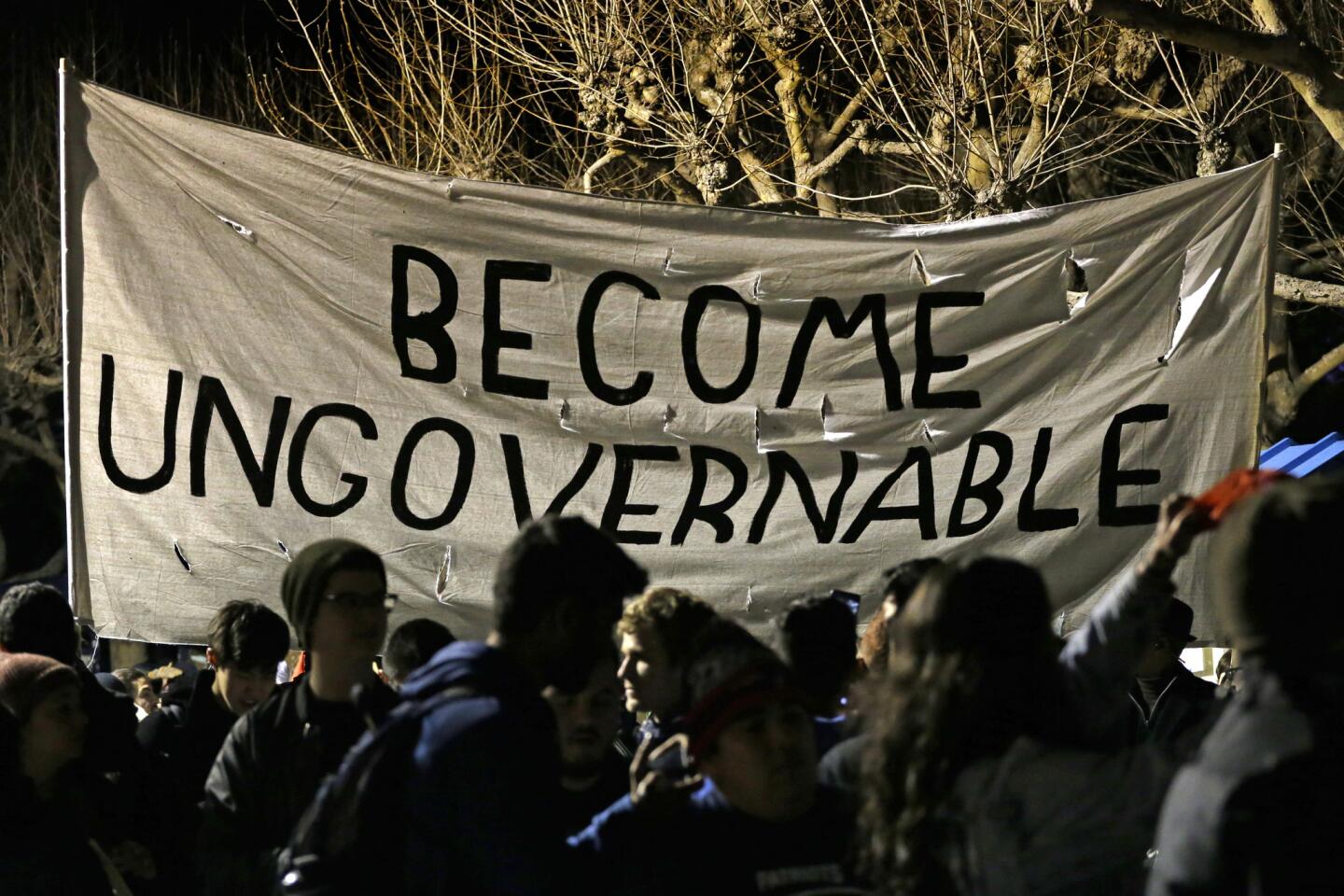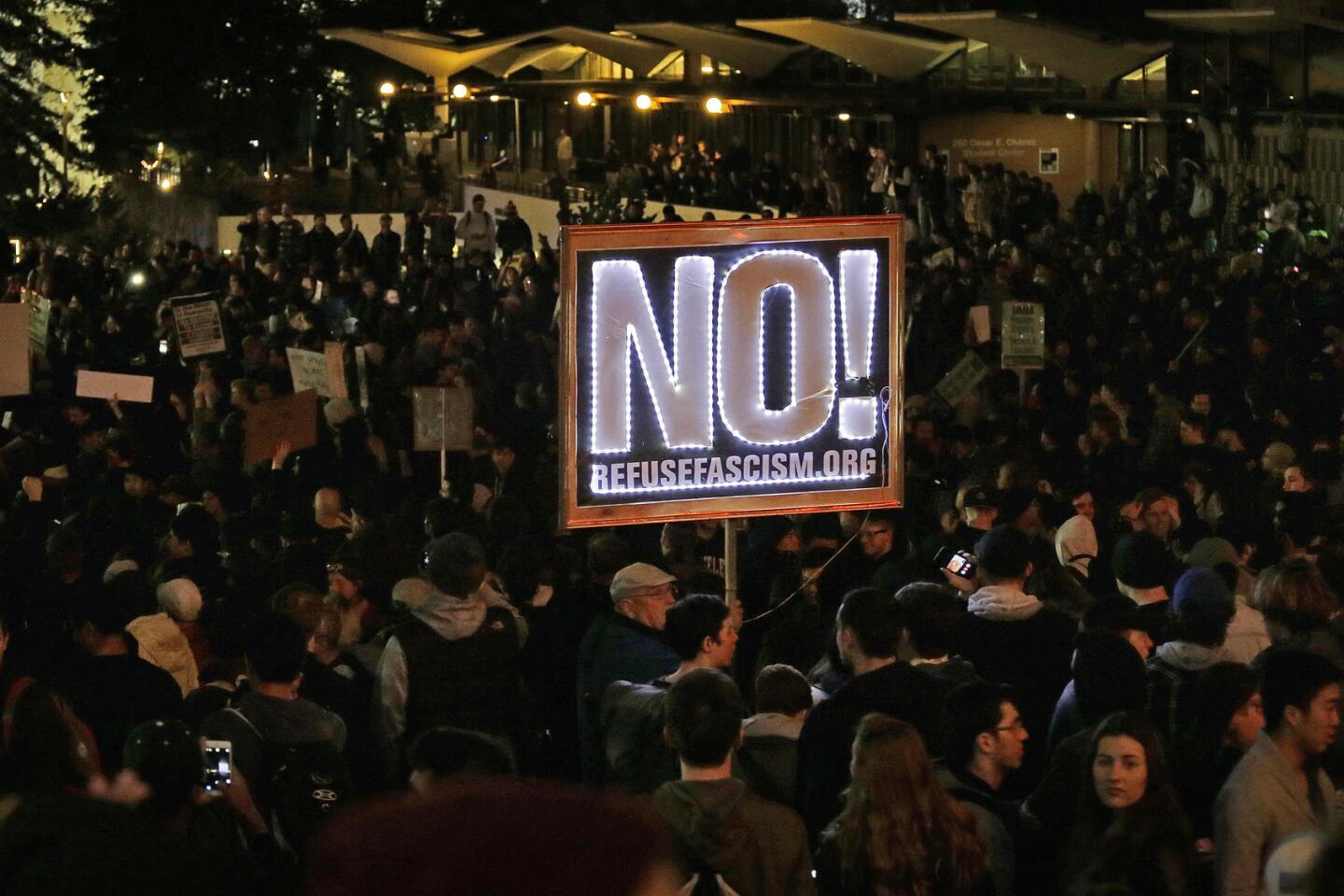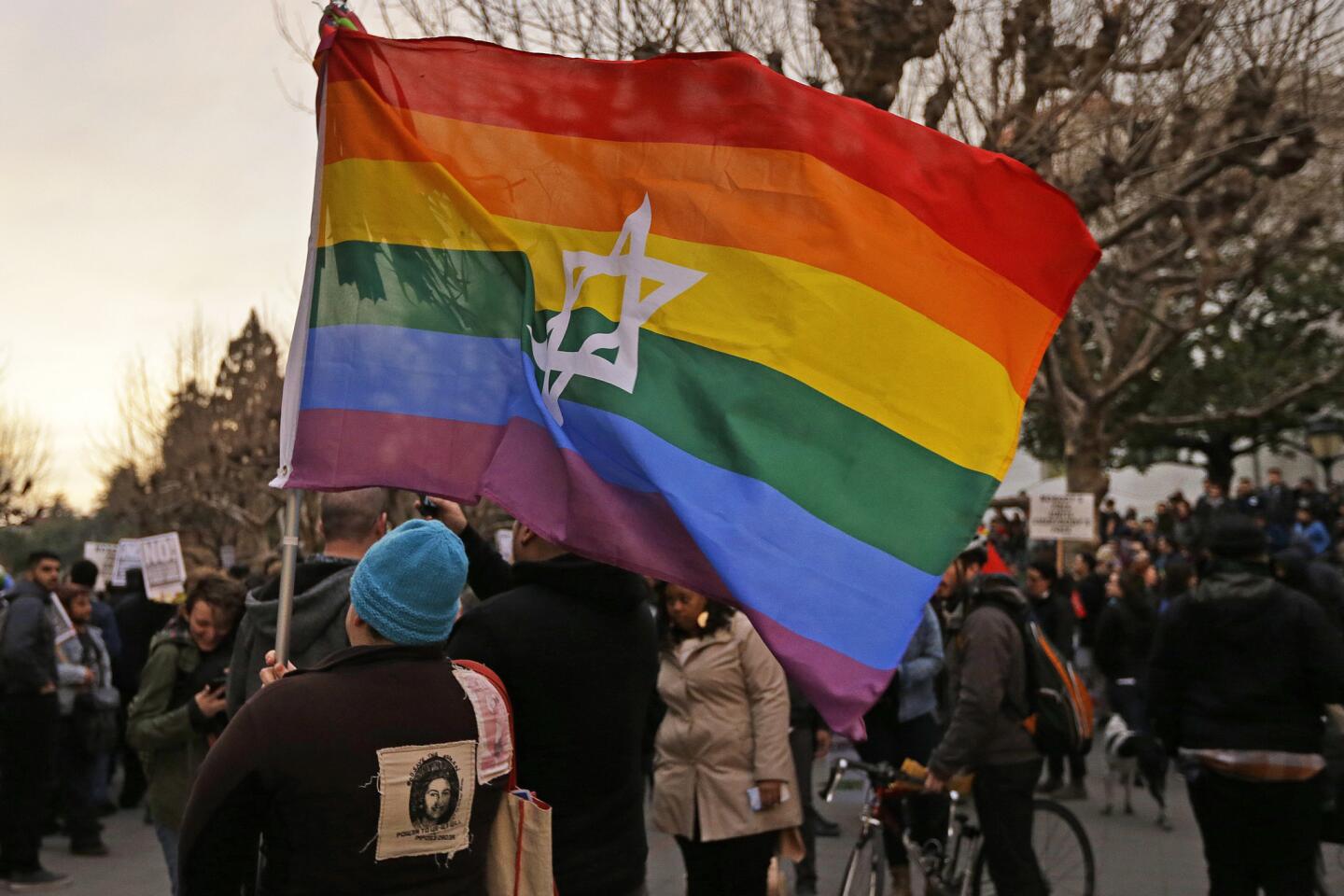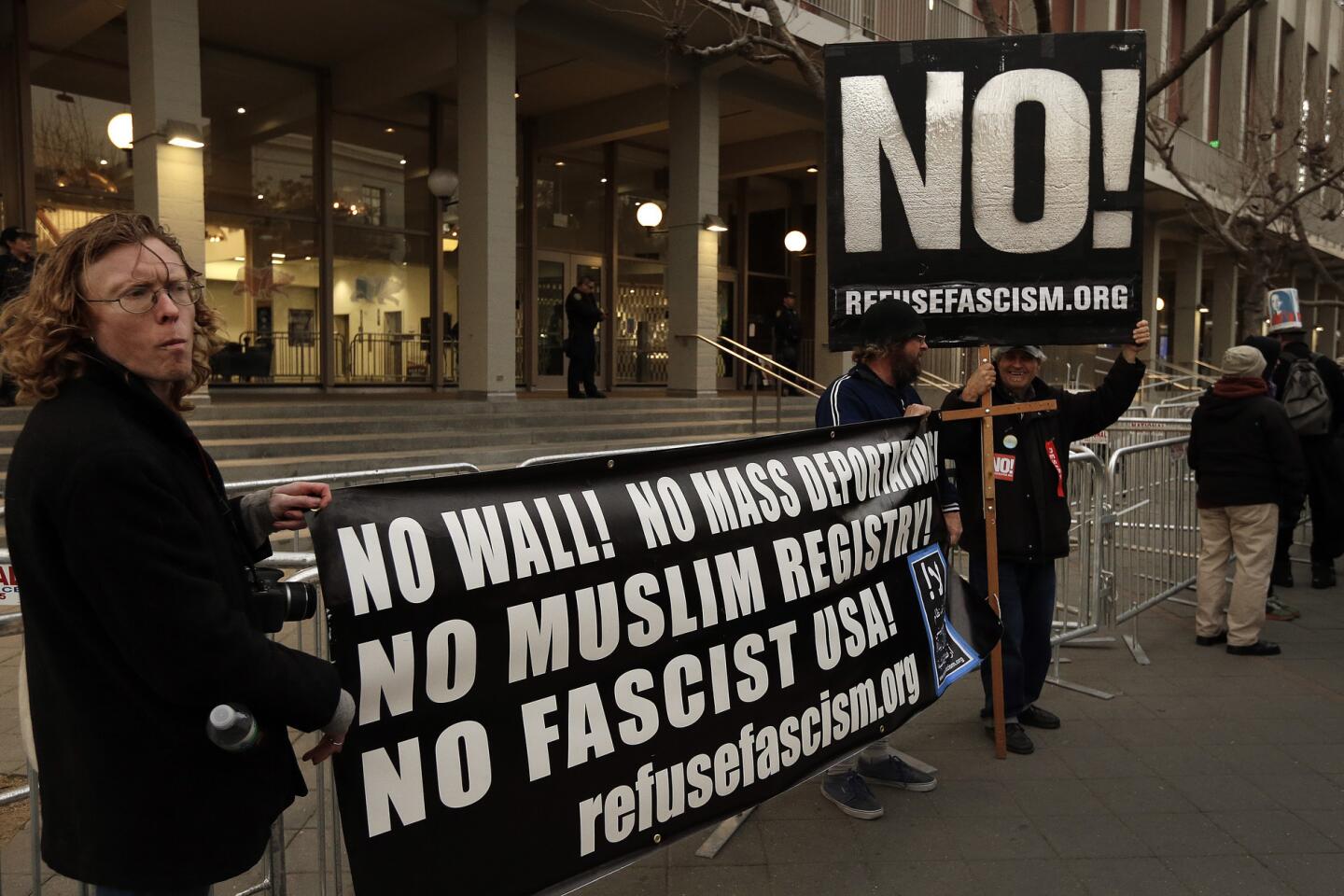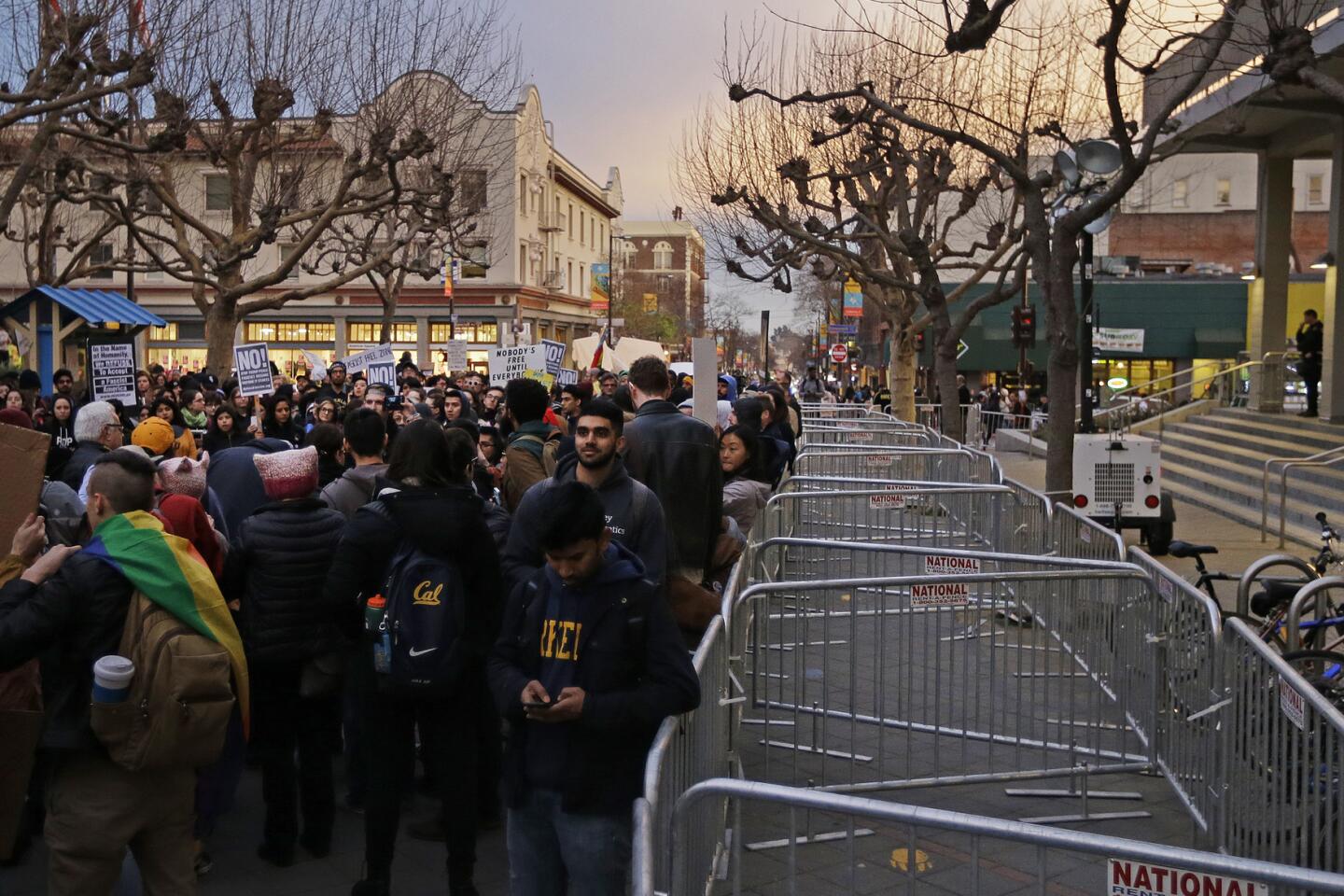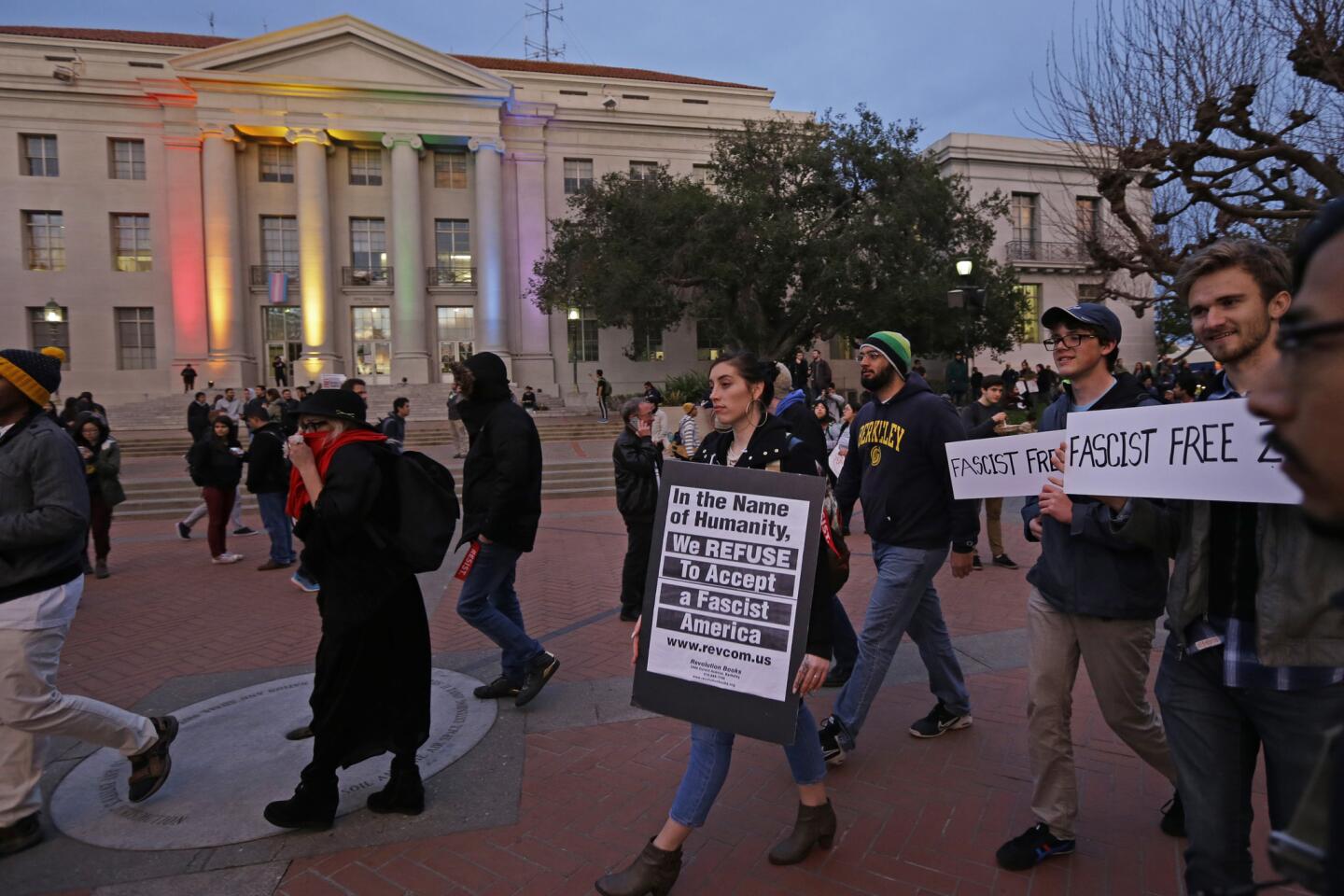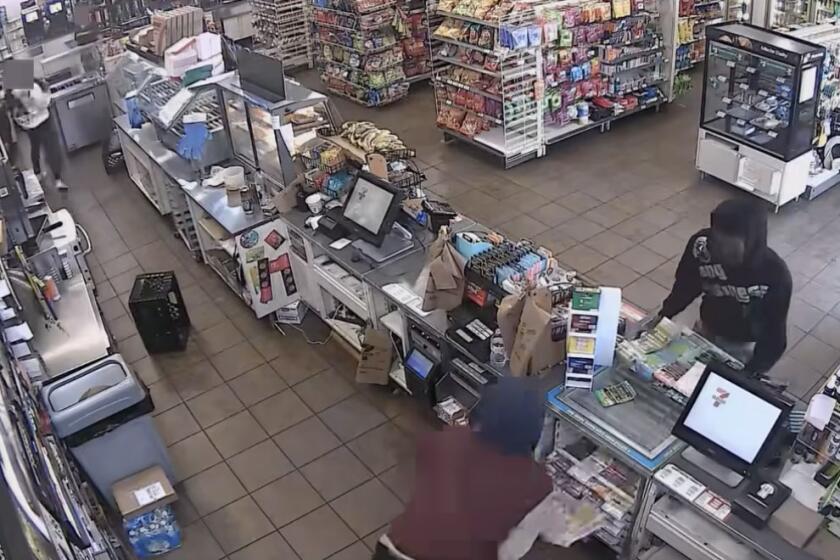Q&A: It’s a free speech clash as Milo Yiannopoulos is shut down at UC Berkeley

A speech by conservative firebrand and Milo Yiannopoulos was canceled at UC Berkeley on Wednesday amid violent protests that prompted President Trump to suggest cutting funding to the university.
Angry protests Wednesday night at UC Berkeley forced the cancellation of a talk by conservative firebrand and Donald Trump supporter Milo Yiannopoulos on Wednesday.
That sparked criticism from President Trump, who said on Twitter: “If U.C. Berkeley does not allow free speech and practices violence on innocent people with a different point of view - NO FEDERAL FUNDS?”
Trump’s tweet heightens a debate already roiling the University of California over free speech, hate speech and what to do about Yiannopoulos.
Here’s a look at the free speech issues and what we know about how vulnerable funding could be:
What’s the backstory on Yiannopoulos?
Yiannopoulos’ campus talks have generated protests and anger from students and faculty, but top UC officials have generally said they believe he has a right to speak.
Less than a month before the events in Berkeley, protesters at UC Davis prevented him from speaking on their campus.
Some in the university said both cancellations were a blow to free speech and that Yiannopoulos should be allowed to be heard, no matter how offensive his views are.
What’s the counter viewpoint on his right to speak?
Opponents of Yiannopoulos say he is a provocateur who has no place on campus.
At Berkeley, a letter by a dozen faculty members argued that his talk could be canceled on the grounds that his actions — which they called “harassment, slander, defamation and hate speech” — violated UC Berkeley’s code of conduct.
Where do top UC officials stand?
UC President Janet Napolitano and the Board of Regents have advocated fighting offensive speech with “more speech” rather than censorship. This concept was included in “Principles Against Intolerance” approved by UC regents last year as guidelines for the 10-campus system. Campus administrators are counseling a similar approach to those urging a ban on Yiannopoulos.
Some free-speech advocates have cited cases similar to Yiannopoulos.’
Berkeley allowed African American student organizations to sponsor a 2012 campus visit by Nation of Islam leader Louis Farrakhan, who has been widely accused of anti-Semitism, racism and homophobia.
The UC president at the time, Mark Yudof, denounced Farrakhan’s message, but defended his right to speak.
UC Berkeley spokesman Dan Mogulof on Thursday condemned this week’s violence and said that campus officials went to “extraordinary lengths” over weeks of planning to help the Berkeley College Republicans prepare for the event.
“We thoroughly condemn the violence and lawless behavior, and we deeply regret that the actions of a few trampled on the 1st Amendment rights of others,” he said.
How dependent is the UC system on federal funding?
Very dependent.
The UC’s total budget generally runs well over $20 billion, but several billion of that comes directly from the federal government.
“Federal funds are the university’s single most important source of support for research, generating $2.8 billion and accounting for nearly 51% of all university research expenditures in 2013-14,” according to a UC report. “While UC researchers receive support from virtually all federal agencies, the National Institutes of Health and the National Science Foundation are the two largest sponsors, accounting for nearly 80% of UC’s federal research contract and grant awards.”
UC, for example, manages the Lawrence Berkeley National Laboratory, which gets more than $700 million in federal funds, that report said.
How hard would it be to cut federal funds from UC Berkeley?
It’s hard to know whether Trump’s tweet was actually suggesting a policy change or simply commenting on the protests at Berkeley.
But it would likely be hard to segregate much of federal funding from just one university given that it involves programs that provide money to many different institutions and activities.
As for federal student aid, UC got more than $1.6 billion in 2014. The UC’s medical facilities got $2.8 billion in federal money.
Who is Yiannopoulos?
Yiannopoulos, 32, writes for Breitbart News — a popular website among the far right — and he is an avowed supporter of President Trump. He’s also a flamboyant provocateur who has been denounced for propagating racism, misogyny and anti-Islam views, but he styles himself a champion of free speech.
This summer, he gained notoriety for encouraging a barrage of harassment against “Ghostbusters” actress Leslie Jones, which prompted Twitter to ban him from the social media platform.
Controversy, unrest and, occasionally, violence has followed his speaking tour at colleges across the U.S., for which Berkeley was to be the final event. Last month, a man was shot outside a University of Washington hall where Yiannopoulos was scheduled to speak.
At the University of Wisconsin-Milwaukee recently, according to a transcript of his remarks that appeared on the Breitbart website, he mocked a transgender student by name for filing a Title IX complaint about bathroom access. He also said:
“Black Lives Matter is the ultimate divisive movement.”
“If white privilege is a thing, why are people working so hard to be black? All of the award shows and cultural events favor black culture.”
“‘Man up’ is a big no-no for liberals, intent on eliminating masculinity from our culture. ‘Toxic masculinity’ and ‘rape culture’ and all the other idiotic things they like to say in their war against men.”
Wednesday’s decision by Berkeley officials is the second time in two weeks that rowdy protests have forced the cancellation of one of his lectures. UC Davis also canceled one of his speeches last month.
Have university officials supported his right to speak on campus?
The cancellation of his talk at UC Davis sparked debate about the limits of free speech and hate speech. Davis College Republicans decided it was unsafe to continue the event after a large number of protesters blocked access to the venue, according to a release from the school.
UC Davis interim Chancellor Ralph Hexter said he was “deeply disappointed” by the protests and the cancellation and said he worried that outside groups are using college campuses to trigger conflicts intended for the national stage.
“I get very, very alarmed with folks who don’t treat [freedom of speech] for the treasure that it is,” he said two weeks ago.
So far, the UC system has resisted calls to cancel Yiannopoulos’ talks. At noon, just hours before Wednesday’s event, Berkeley administrators issued a statement saying they were committed to tolerance as well as free speech.
In the weeks before Yiannopoulos’ planned Berkeley appearance, administrators received hundreds of letters from faculty, students and others demanding they bar him from speaking.
ALSO
Trump suggests cutting funds to UC Berkeley after protests force speech cancellation
‘So far I couldn’t be happier.’ Red California backs Trump, sees protests as overreaction
‘I can see the fear’: multicultural Los Angeles senses a different world under Trump
UPDATES:
1:15 p.m.: The story has been updated with remarks Yiannopoulos made in Wisconsin in December.
9 a.m.: This story has been updated with comments from a UC Berkeley spokesman.
This article was originally published at 8:05 a.m.
More to Read
Start your day right
Sign up for Essential California for news, features and recommendations from the L.A. Times and beyond in your inbox six days a week.
You may occasionally receive promotional content from the Los Angeles Times.
